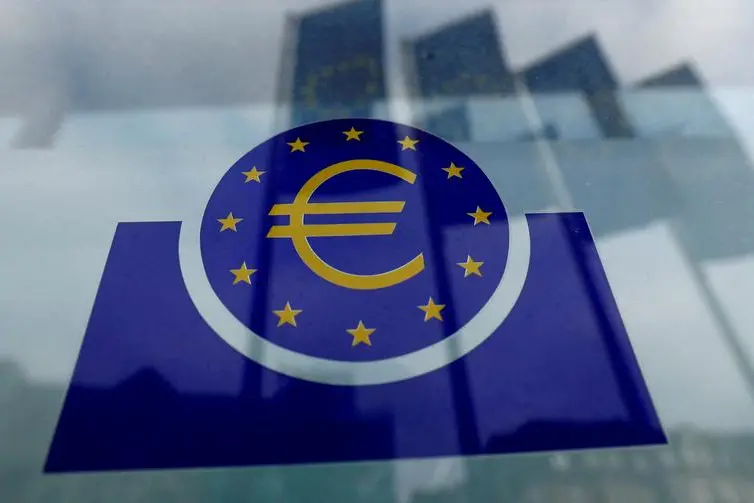PHOTO
Euro zone bond yields eased to a more than one-week low on Wednesday, ahead of a widely expected interest rate cut from the European Central Bank.
Germany's 10-year bond yield, the benchmark for the bloc, dipped 4 basis points to 2.187%, its lowest since Oct. 4.
The rally in bond prices, which move inversely to yields, slowed from a day earlier, when a sharp slide in oil prices calmed inflationary worries.
All eyes will be on the ECB meeting, where money markets are fully pricing in the central bank to deliver a third quarter-point rate cut on Thursday that will take the current deposit rate to 3.25%, and another similar move before the end of the year.
Expectations of more ECB rate cuts to support a weakening economy, along with receding bets on a jumbo rate cut from the Federal Reserve have weighed on euro zone yields recently.
"Recent cooling in inflation data means they're less burdened by potential price pressures. With minimal pushback from ECB members, markets would be surprised if a cut didn't happen," said Neil Hutchison, European liquidity strategies portfolio manager at J.P. Morgan Asset Management.
Beyond this week, "concerns over a potential growth slowdown and geopolitical tensions, amid resilient wage growth and low unemployment" will dictate the ECB outlook.
Germany's two-year bond yield, which is more sensitive to rate expectations, slipped nearly 4 bps to 2.17%, also near its lowest since Oct. 4.
ECB President Christine Lagarde is due to speak at the Slovenian central bank's official dinner later on Wednesday.
In the primary market, Germany sold 3.10 billion euros of its 30-year bonds, which saw the strongest bid for any 30-year auction in a year, according to Refinitiv IFR.
Elsewhere, the yield on two-year British government bonds slumped after weaker-than-expected inflation data prompted investors to raise their bets on the Bank of England cutting interest rates.
Italy's 10-year yield was lower by 4 bps at 3.426%, and the gap between Italian and German bunds narrowed by 1 bp to 123.9, near the tightest level since July.
Italy's Prime Minister Giorgia Meloni said on Tuesday the government planned to raise 3.5 billion euros ($3.81 billion) from domestic banks and insurers after her cabinet approved budget plans for the next three years.
Rome is under an EU disciplinary procedure due to a budget deficit last year of 7.2% of GDP, far above the bloc's 3% limit and also the highest in the euro zone.
(Reporting by Medha Singh in Bengaluru; Editing by Andrew Heavens, Varun H K and Alison Williams)




















